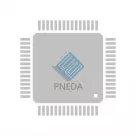What is precision resistance? Can ordinary resistance replace precision resistance?

A precision resistor is a resistor that is characterized by very high accuracy and stability. This means that their resistance value remains constant throughout their service life, even after changes in temperature, humidity, or after a long period of use. Precision resistors are commonly used in applications that require high resistance accuracy, such as precision measurement equipment, advanced audio equipment, medical instruments, and industrial control systems. They are able to provide very accurate resistance values, which are essential to ensure the correct operation of the circuit.
The main difference between ordinary resistors and precision resistors is their manufacturing accuracy and stability. The manufacturing tolerance of ordinary resistors is large, and the accuracy and stability of resistance values are low, which is acceptable in most everyday electronic devices and simple circuits. However, when the performance of the circuit is highly dependent on the accuracy of the resistance value, ordinary resistors cannot meet the demand.
In theory, ordinary resistors can replace precision resistors in some cases, especially in applications where the accuracy of the resistance value is not required. However, this substitution can introduce uncertainties and performance changes that may cause the circuit to work erratically or to degrade performance. For example, using common resistors instead of precision resistors in a precision measurement circuit may lead to deviations in measurement results, affecting the accuracy and reliability of the device.
Precision resistors are usually manufactured using special materials and processes to ensure their high precision and stability. These resistors may use metal foils, metal films, or other high-precision materials as resistance elements, as well as precise laser adjustment techniques to achieve the desired resistance value. In addition, they are specially treated to increase their resistance to environmental changes, thus maintaining the stability of their resistance values.
In some applications, ordinary resistors cannot replace precision resistors. For example, in the case of high-precision current measurement or voltage distribution, the use of ordinary resistors can lead to large errors, affecting the performance and accuracy of the device. In these cases, precision resistors are an essential choice due to their high accuracy and stability.
However, in some applications where the accuracy of the resistance value is not high, such as some simple electronic circuits, consumer electronics, etc., ordinary resistors can meet the demand, and the use of precision resistors may not bring significant performance improvements, but will increase the cost.
In short, whether ordinary resistors can be used instead of precision resistors depends on the specific application needs. When choosing the type of resistor, it is necessary to consider the requirements, cost, availability and possible performance impact of the circuit.
Precision resistors are widely used, and they play a crucial role in electronic design and manufacturing, especially where accuracy and stability are required. With the continuous advancement of electronic technology, the demand for precision resistors is also growing. In the future, with the development of new materials and new technologies, the performance of precision resistors will be further improved, and the application range will be further expanded, providing stronger support for the development and application of various high-precision electronic devices.
The Products You May Be Interested In
 |
AIML-0805-4R7K-T | FIXED IND 4.7UH 30MA 1 OHM SMD | 27972 More on Order |
 |
ASPI-0615FS-6R8M-T2 | FIXED IND 6.8UH 1.8A 60 MOHM SMD | 59136 More on Order |
 |
AFS20A05-719.00-T3 | FILTER SAW 719MHZ 4SMD | 6984 More on Order |
 |
AMPDAEI-A02T3 | OSC MEMS XO DUAL OUTPUT | 2250 More on Order |
 |
AMPMDFB-33.33333T3 | MEMS OSC XO 33.3333MHZ CMOS SMD | 7668 More on Order |
 |
AMPMAGC-6.16791T3 | MEMS OSC XO 6.1679MHZ CMOS SMD | 7218 More on Order |
 |
AMPMGFA-64.0000T | MEMS OSC XO 64.0000MHZ CMOS SMD | 4896 More on Order |
 |
AMPMDGA-24.54545T | MEMS OSC XO 24.5455MHZ CMOS SMD | 3528 More on Order |
 |
AMPMDGA-28.6363 | MEMS OSC XO 28.6363MHZ CMOS SMD | 4194 More on Order |
 |
AMPMAED-54.0000 | MEMS OSC XO 54.0000MHZ CMOS SMD | 6966 More on Order |
 |
AMJMADL-100.0000 | MEMS OSC XO 100.0000MHZ CMOS SMD | 4626 More on Order |
 |
ASGTX-P-19.440MHZ-1-T2 | XTAL OSC VCTCXO 19.4400MHZ LVPEC | 5004 More on Order |
 |
AX7MCF4-1966.0800T | XTAL OSC XO 1.96608GHZ CML SMD | 5202 More on Order |
 |
AX7MCF1-1050.0000T | XTAL OSC XO 1.0500GHZ CML SMD | 6174 More on Order |
 |
AX7MBF2-1100.0000T | XTAL OSC XO 1.1000GHZ CML SMD | 8838 More on Order |
 |
AX7DBF3-700.0000T | XTAL OSC XO 700.0000MHZ LVDS SMD | 5454 More on Order |
 |
AX7PBF2-515.0000C | XTAL OSC XO 515.0000MHZ LVPECL | 5022 More on Order |
 |
AX7DAF4-515.0000C | XTAL OSC XO 515.0000MHZ LVDS SMD | 3744 More on Order |
 |
AX7PAF1-114.2850C | XTAL OSC XO 114.2850MHZ LVPECL | 2286 More on Order |
 |
ASTMHTFL-66.666MHZ-AJ-E-T | MEMS OSC XO 66.6660MHZ LVCMOS | 3598 More on Order |
 |
ASTMHTD-48.000MHZ-XR-E-T | MEMS OSC XO 48.0000MHZ LVCMOS | 2736 More on Order |
 |
ABM13W-37.4000MHZ-6-DH7G-T5 | CRYSTAL 37.4MHZ 6PF SMD | 2898 More on Order |
 |
ABM11W-37.0500MHZ-8-K2Z-T3 | CRYSTAL 37.0500MHZ 8PF SMD | 7866 More on Order |
 |
ABM10W-33.3333MHZ-8-B1U-T3 | CRYSTAL 33.3333MHZ 8PF SMD | 8046 More on Order |









